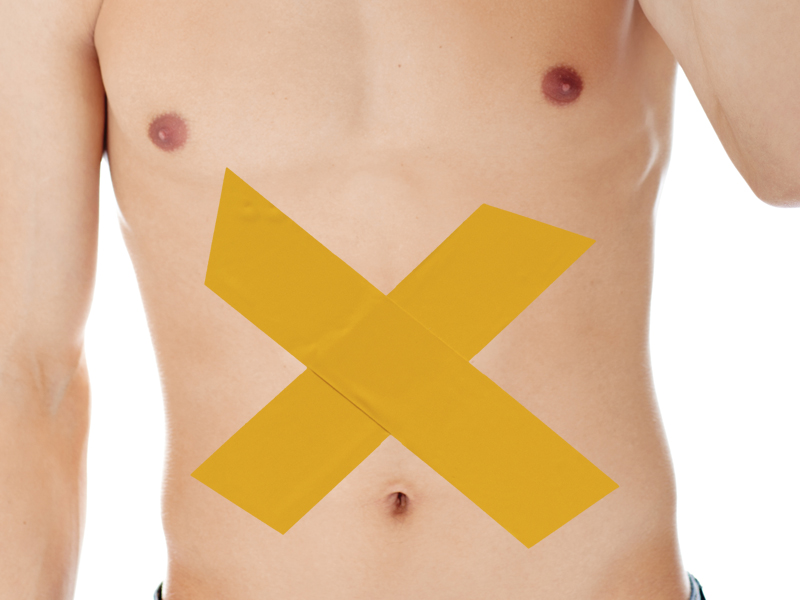If you’ve ever had a hernia, you know the drill. The doctor dons a latex glove, positions his or her hand in the appropriate place, and instructs you to turn your head and cough. It’s a fairly straightforward condition to diagnose, but what encourages them to develop in the first place, is surgery necessary and what can you do to prevent hernias?
According to the National Institutes of Health (NIH), a hernia occurs when part of an internal organ or tissue bulges through a weak area of muscle. Most hernias are located in the abdomen. There are several types of hernias, including inguinal, or in the groin. Generally caused by a combination of muscle weakness and strain, inguinal hernias are the most common type. Common hernia-inducing types of strain include obesity or sudden weight gain, lifting heavy objects, diarrhea or constipation and persistent coughing or sneezing.
Typical signs of an inguinal hernia can include a bulge in the area on either side of the pubic bone, accompanied by an aching sensation. The bulge is usually more obvious when you stand upright, especially if you cough or strain. There may be pain or a heavy sensation in your groin area, especially when bending over, coughing or lifting. Hernia repair usually involves surgery to repair the opening in the muscle wall, but not always.
According to Dr. Steven Hopson, Director of the Hernia Center at Tidewater Physicians Multispecialty Group (TPMG) General Surgery and Hernia Center, proper evaluation is necessary.
Hernia Repair
“Depending on the symptoms and size and the patients we will sometimes recommend surgery,” he says. “But sometimes we won’t. We assess the size and type of the hernia, the symptoms, and the patient’s comorbidities [whether or not the patient is obese, a smoker, or a diabetic] to decide which procedure is best.”
Dr. Hopson says that hernia repair has changed pretty substantially in recent years. “The procedures we do now are highly technical. The materials we use, such as mesh, are becoming more and more specialized to each patient’s needs. We really try to individualize the hernia procedures that we do.”
Contrary to what a lot of people think, the minimally invasive or laparoscopic procedure might not always be the best remedy.
“In some instances, we are actually finding that a more traditional ‘open’ surgical procedure may be better,” Hopson says. “Due to these advances in technology, we understand better the science behind ‘abdominal wall reconstruction’ – that is what we are calling them – we are getting away from the word ‘hernia’. If we can reconstruct the abdominal wall with more advanced techniques and materials, sometimes an open or more traditional procedure is better than a laparoscopic one. It really just depends on the patient.”
Tips for Preventing Hernias
- Staying at a healthy weight for your height and body type is a great way to help prevent hernias
- Make fiber a regular part of your diet to help prevent hernias
- Be careful when weight lifting or lifting heavy objects.
- If you’re a smoker, quit. Smoking can cause persistent coughing, which can strain your abdominal muscles. (The risk of hernia is just one more reason to kick the habit!)



